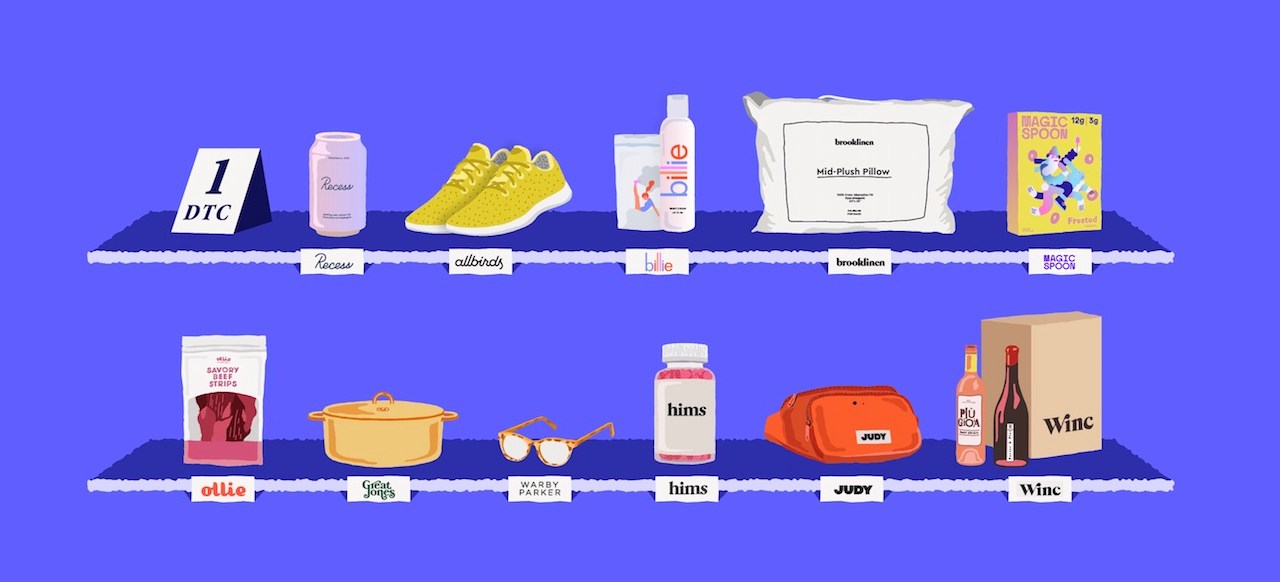Why it will be hard for BigCommerce to dethrone Shopify as the DTC platform of choice

This is the latest installment of the DTC Briefing, a weekly Modern Retail+ column about the biggest challenges and trends facing the volatile direct-to-consumer startup world. More from the series →
This week, BigCommerce, an e-commerce platform that helps power about 60,000 online stores around the world, filed for a proposed IPO. The company’s S-1 showed some signs of promise: The company brought in $112.1 million in revenue in 2019, up 22% from the year before. But in the direct-to-consumer startup space, the response to BigCommerce’s IPO was muted.
That’s because Shopify, BigCommerce’s competitor, is the e-commerce solution that the vast majority of DTC startups use. Shopify doesn’t break out how many DTC brands use its platform, but its dominance is clear based on the numbers. Shopify said that as of last October that more than one million merchants use its platform. Among the brands that use Shopify are some of the most highly valued direct-to-consumer brands in the space, including Warby Parker, Rothy’s, Allbirds and Untuckit.
E-commerce is only expected to make up a greater percentage of total retail sales in the U.S. in the coming years, a trend that has been accelerated by the coronavirus. That means there’s a lucrative opportunity ahead for e-commerce platforms like Shopify and BigCommerce. But among Shopify’s competitors — which includes a bevy of tech companies like Magento, WooCommerce, Salesforce, Microsoft and Amazon — no one company yet has emerged as the biggest threat to Shopify’s position as the go-to e-commerce platform for DTC brands.
A March report from eMarketer projected that DTC brands would account $17.75 billion, or 2.6% of total U.S. e-commerce sales in 2019. But, e-commerce platforms are eager to court direct-to-consumer brands, because it’s a segment that is growing more quickly than total U.S. e-commerce sales, even though the rate of growth is slowing, according to eMarketer. In 2018, sales from DTC brands grew 56.5% from the year prior, and 33.1% in 2019.
Agencies say that Shopify’s dominance comes down to a few factors. One, it’s one of the easiest platforms to get started on, because it requires less customization. Second, as Shopify’s customer base and revenue has grown more quickly compared to competitors, that’s allowed it to justify investments in more costly services for its customers, like a fulfillment service that Shopify unveiled last year.
But Shopify’s dominance also says a lot about the state of DTC startups. The reason why so many DTC brands still use Shopify is because they haven’t grown to the point where they require a more unique e-commerce setup. Many of them still only sell at most dozens of product SKUS. Most of them still only sell primarily through their website and a handful of stores. Some don’t sell wholesale through other retailers, and they haven’t developed their own marketplaces. And, despite earlier DTC startups’ efforts to brand themselves as tech companies, ultimately tech isn’t that much of a differentiating factor for DTC startups.
“I think Shopify has a lot of the mindshare,” said Mark William Lewis, founder and chief technology officer at the e-commerce agency Netalico. “Part of that is because of the stock price — people just think of Shopify and think ‘oh that’s an e-commerce name that I know.'” Lewis said that the majority of his clients do use Shopify, primarily because it is the easiest platform to get started on. But, there are a few limitations to Shopify, namely that it doesn’t allow for as much customization in the checkout process for the regular, paid tier. (Shopify’s enterprise product, Shopify Plus does offer more customization at checkout, he said). For example, one of Netalico’s clients, which sells pet medications, needs to collect more detailed information at checkout, like a veterinarian’s name and contact info. That client operates off of Magento, which Lewis said allows for more customization at checkout.
Ad position: web_incontent_pos1
In its S-1, BigCommerce said that the growth of DTC brands, was a trend that would work in its favor, and that it believes its platform can grow with these startups as they mature. “The growth in [DTCs] has corresponded with demand for turnkey e-commerce platforms that support both rapid product launch and scaling to mid-market size and beyond,” the S-1 stated. However, until BigCommerce has more of these DTC clients that can grow to mid-market size — and proves it can support them — Shopify will likely remain the dominant platform of choice.
Michael Cassidy, CEO of Shopify agency BVA, said that he thinks Shopify does the best job of growing with direct-to-consumer brands, citing its willingness to invest in its fulfillment network. “Shopify is able to think about drones, they’re able to think about unique things on shipping, they’re able to think about AI/virtual try on,” said Cassidy, whose agency works with about 75 DTC brands at any given time, including Chubbies and Untuckit. “I think a lot of that is really exciting for merchants.”
When a brand might have to start to consider a Shopify alternative, said Cassidy, is “when you start getting into a more complex business.” And ultimately, many of today’s DTC startups haven’t gotten there yet.
“If you have a 10,000 SKU catalog, if you have mix of DTC and B-to-B, if you have multi-channel marketing, like an Avon that has a bunch of sales reps, if you have a huge international business — those are some of the things that might get you thinking, alright well is Shopify for me, and do I need something else,” said Cassidy.
Correction: This story previously stated that BigCommerce went public. It has not gone public, it has filed an S-1.

